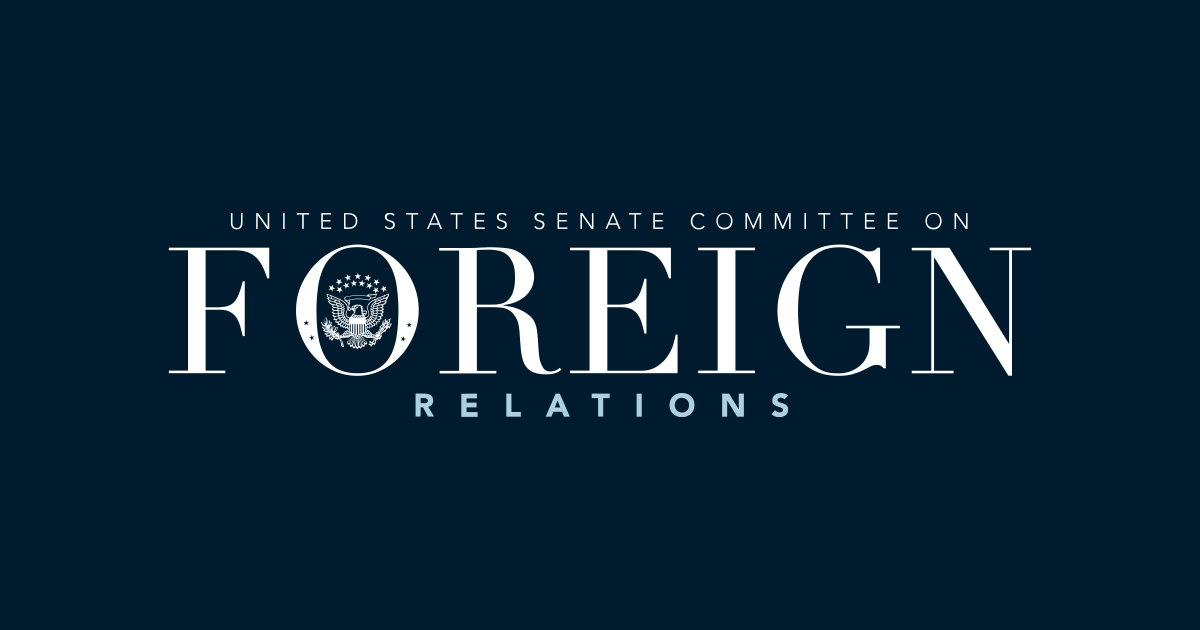
WASHINGTON – U.S. Senator Jim Risch (R-Idaho), ranking member of the Senate Foreign Relations Committee, today gave the following opening remarks at a full committee hearing on U.S. leadership on artificial intelligence in an era of strategic competition. Witnesses included The Honorable Nathaniel Fick, ambassador at large at the State Department’s Bureau for Cyberspace and Digital Policy, and Dr. Matthew Graviss chief data and artificial intelligence officer at the State Department.
Ranking Member Risch gave the following remarks:
“Thank you, Mr. Chairman. And thank you to our witnesses for being here.
“The ongoing wars in Europe and the Middle East are reminders of the threats and instability that define the era of strategic competition in which we live. Amidst the images of chaos and destruction splashed across headlines, yet another competition is raging.
“New advances in artificial intelligence (AI) will transform the way we live, do business, and interact with the world. These advances also have significant implications for our foreign policy and, importantly, national security. The United States and our allies must lead the world in developing the transformational technologies – and the standards that govern them – that will shape the future.
“If harnessed appropriately, AI-driven algorithms can provide the State Department with real-time data and insights. This includes everything from how effective policies are in different parts of the world, to which IT vulnerabilities are most likely to be exploited by an adversary, to which overseas staffing models are most efficient and effective in meeting the Department’s needs.
“We must also prepare for the ways our adversaries, like Russia, Iran, and particularly China, are trying to use AI. AI-powered cyber-attacks could overwhelm our defenses by rapidly identifying our vulnerabilities and exploiting them. AI-driven information operations could target government officials or certain segments of the public and confuse, distract, or paralyze the decision-making process. AI-enabled battlefield management systems could give our adversaries a decisive advantage in targeting U.S. forces and striking key weak points.
“Since AI and machine-learning rely on accurate data to work correctly, our adversaries could also deliberately manipulate or corrupt publicly-available databases to ensure predictive models or analytics used by the U.S. government don’t work properly during a crisis.
“To respond to both the opportunities and threats posed by new AI-driven technologies, the State Department should focus on two areas that I hope our witnesses will be able to talk more about today.
“First, we need to work with our allies to set the standards that will govern how AI is used around the world. We need to collaborate on research in key areas and identify the specific national security-sensitive technologies that adversaries like China will try to steal or copy and develop tougher safeguards.
“Ambassador Fick – Congress established the Bureau of Cyberspace and Digital Policy, which you lead, in part to spearhead this type of engagement with allies. I look forward to hearing more from you about the work you are doing in this area. I would also like to hear your insights into how AI could transform the cyber threat landscape and what you’re doing about it.
“Second, we need a workforce that not only understands how data and AI and machine-learning work, but also how to integrate these tools into their daily work.
“I am pleased to see the Department begin to pursue a data driven approach to diplomacy because it has the potential to improve our foreign policy. Using all the information available to make national security decisions is a crucial part in getting to the right answer. Data-driven diplomacy also helps counteract groupthink within the Department, which limits options and stifles critical thinking.
“But, “data-driven diplomacy” can’t just be a talking point. The Department has to truly commit to integrating data into the policymaking process and changing course, if necessary, when it receives objective feedback that a policy or procedure simply isn’t working.
“The State Department’s Center for Data Analytics was established to better integrate data analysis and expertise into foreign policy decision-making and to develop a workforce that possesses the skills needed to take advantage of these technologies.
“Dr. Graviss, I look forward to hearing more about the progress the Center for Analytics has made in expanding data access and utilization throughout the Department. Any insights you have into challenges and obstacles that remain would be appreciated.
“With that, I’ll turn it back to Mr. Chairman.”
These remarks have been lightly edited for clarity. Witness testimony is available on foreign.senate.gov.
###
